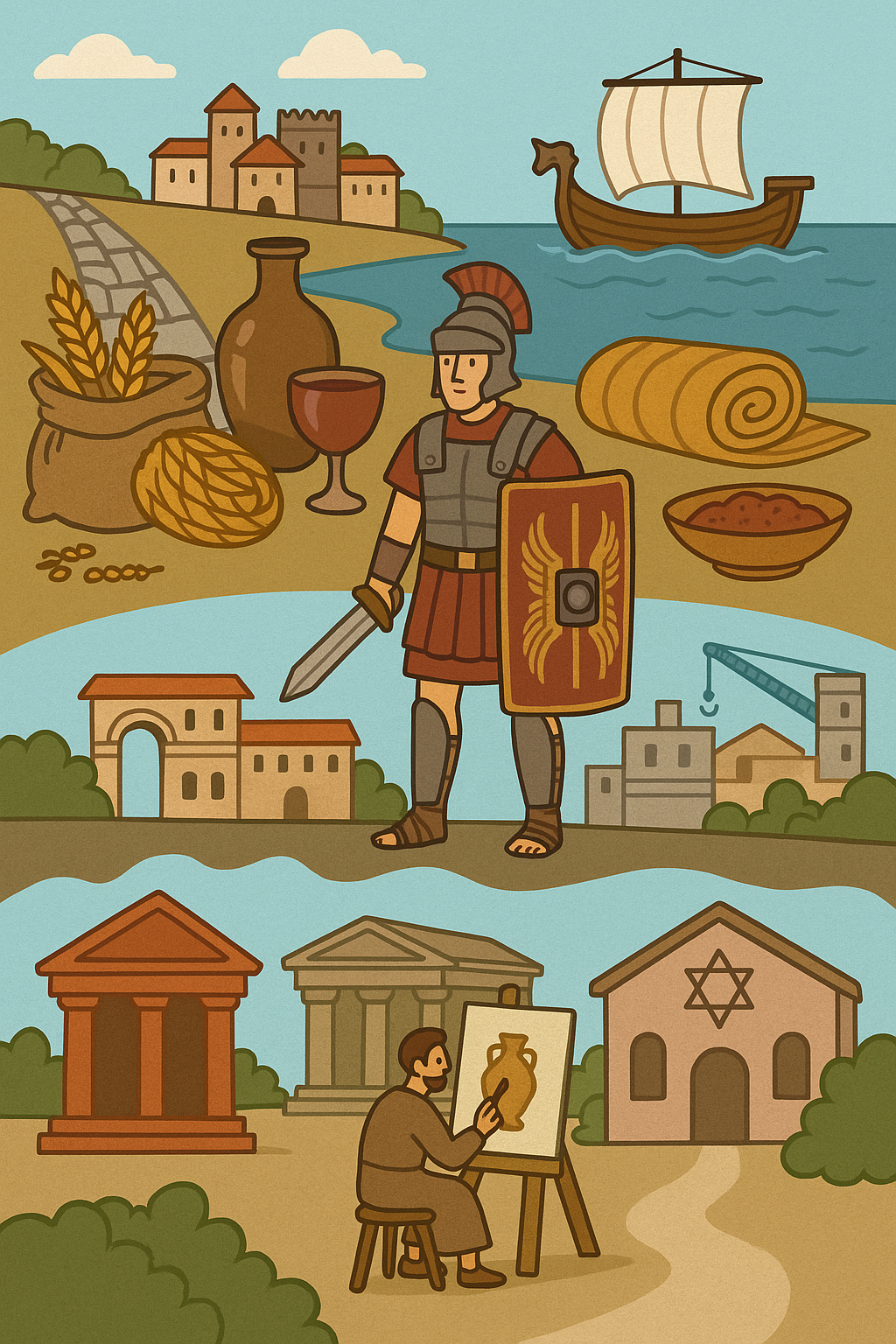Lesson 4: A Vast Empire (Ancient Rome)
🏛️ Chaos After Nero
Nero was the last emperor of the family of Augustus. He was a bad leader. Nero wasted money 💰, hurt his enemies, and lost the people’s trust. In 68 AD, the army and people forced him to leave power. Nero ran away and killed himself.
But then — there was a big problem!
There were no clear rules about who should be the next emperor.
This started the Year of the Four Emperors:
Four men fought to be the new leader. ⚔️
Armies battled across the empire.
Many towns were damaged. 🏚️
Finally, a general named Vespasian won. He started a new time of peace.
⚖️ The Danger of Absolute Power
In Rome, the emperor had almost all the power.
This system was dangerous:
If the emperor was wise, Rome was strong.
If the emperor was selfish or cruel, Rome fell into chaos.
When one man controls everything, no one can stop him from making bad choices. And when he dies, everyone fights to take his place.
Story Time!
One emperor, Vitellius, loved to eat fancy dinners while people starved. When soldiers got tired of him, they captured him and dragged him through the streets. It was a terrible and sad time in Rome.
🛡️ The Empire Expands
After Nero, strong leaders like Vespasian, Trajan, and Hadrian helped the empire grow.
The Roman army 🛡️ was very strong and organized:
Soldiers built forts, bridges, and roads.
They conquered new lands like Britain, parts of Germany, and Dacia (today’s Romania).
Economic reasons were important too:
Rome wanted more farmland 🌾, gold 🪙, and taxes 💰. New lands made Rome richer.
Expanded citizenship:
Some people in the new lands could become Roman citizens!
They could vote. 🗳️
They could own land. 🏡
They could join the army.
This made many people loyal to Rome.
Hadrian 🏰:
Hadrian was a wise emperor.
He stopped expanding and focused on protecting the empire.
He built Hadrian’s Wall in Britain to keep enemies out!
🛍️ Trade Increases
Rome’s size made trade grow:
Roads connected towns and cities 🛣️.
Ships crossed the Mediterranean Sea 🚢.
Goods moved quickly across the empire:
Grain from Egypt 🌾
Wine from Italy 🍷
Silk from China 🧵
Spices from India 🌶️
Markets were full of exciting things from faraway lands!
Story Time!
Imagine shopping in a Roman market: you see purple silk from China, eat dates from Africa, and drink Italian wine — all in one place! 🌎🛍️
🕊️ The Pax Romana
The Pax Romana means "Roman Peace."
From 27 BC to 180 AD, there were very few wars inside the empire.
Life during the Pax Romana:
Roads and cities were built 🏗️.
Travel was safe.
Trade grew.
Arts and science became stronger 🎨📜.
It was a golden time for the Roman world.
🛐 Many Religions Allowed
The Romans ruled many different peoples.
To keep peace, Rome usually let people keep their own religions:
Egyptians worshiped their gods 🛕.
Greeks honored their gods 🏛️.
Jews practiced their faith ✡️.
Romans believed that letting people follow their traditions made it easier to rule.
Story Time!
In a Roman city, you might walk past a Roman temple, then a Greek theater, then a Jewish synagogue — all in the same day!
🏘️🏡 City or Country: Where Would You Live?
City Life 🏘️:
Cities had big markets, theaters, and public baths.
You could hear music and see plays 🎶🎭.
Rich Romans lived in nice houses.
Poor Romans lived in crowded apartments. Fires and sickness were common. 🔥😷
Country Life 🏡:
Farmers worked the land.
They grew grapes, olives, and wheat 🌾🍇.
Life was peaceful but hard.
There were fewer shops and doctors.
🤔 Which Would You Choose?
If you liked excitement, crowds, and entertainment, you would love the city! 🎉
If you liked fresh air, farming, and quiet, you would love the countryside! 🌿
Story Time!
Imagine watching a gladiator fight in the Colosseum 🏟️ with 50,000 people cheering — or sitting under a tree on your farm, eating bread and olives with your family 🥖🫒.
